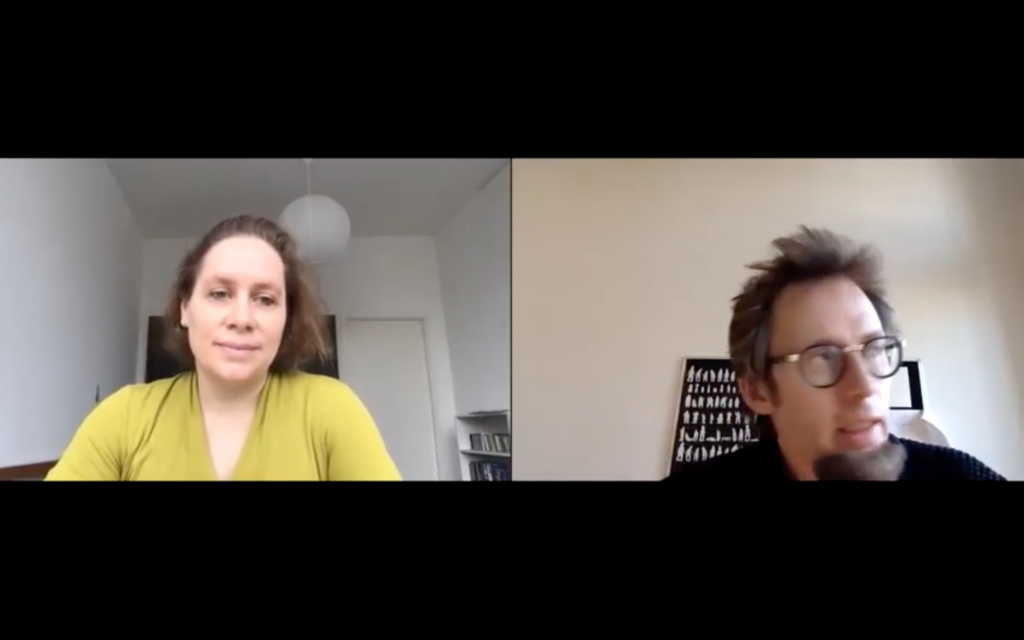Public Events
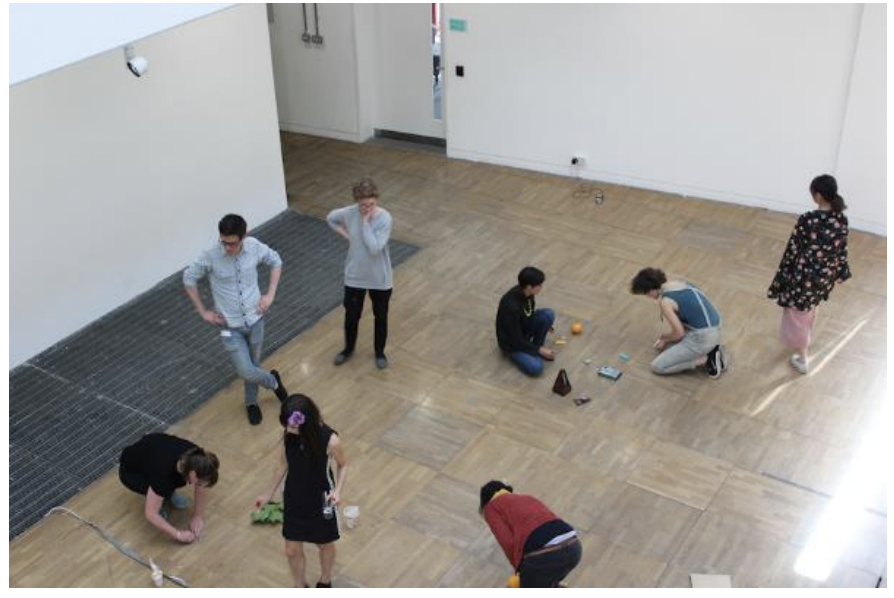
Journal Article | Polish Journal of Aesthetics
Salomé Voegelin and Mark Peter Wright have recently published a peer reviewed article in the Polish Journal of Aesthetics titled "Points of Listening: Reflections on the Participatory and Polyphonic Potential of Communal Sonic Practices." The article questions how polyphony might operate across the collective, communal, and participatory dimensions of sonic practices. What aesthetic and political observations can be gleaned from listening and sound making that attend to the simultaneous affects of shared sonic experiences? The essay reflects on the possibility of plurality in collective and participatory listening and sound making in relation to the project Points of Listening (PoL), an ongoing series of workshops and discussions, co-convened by the authors, in association with Creative Research into Sound Arts Practice, CRiSAP, University of the Arts London.
________________________________________________________________________________________
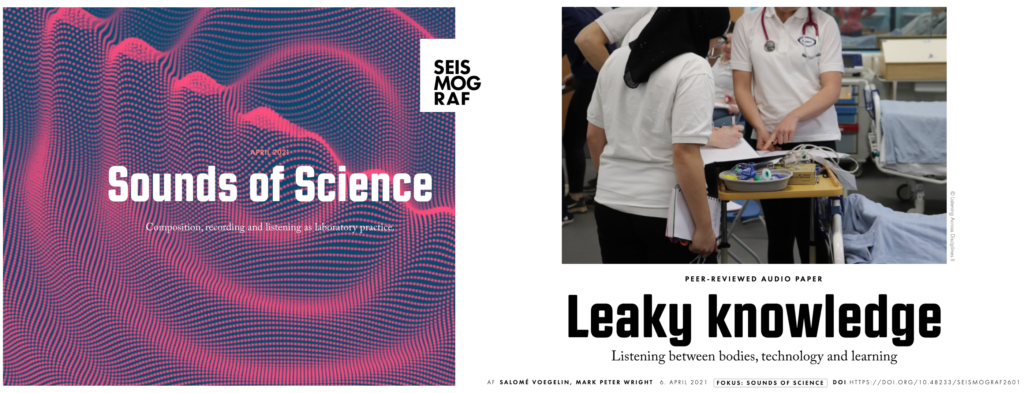
Seismograf Audio Paper | Sounds of Science Edition
Salomé Voegelin and Mark Peter Wright have recently published a peer reviewed audio paper for Seismograf Journal (Sounds of Science Edition). The work reflects on the practice and teaching of auscultation – a medical technique for listening to the body with a stethoscope – in relation to how we know the body as a physiological and a political entity from its sound. The paper is punctured with reflections, questions and critical dialogue by the authors, and aims to generate new knowledge about bodies and subjectivities, from a medical sonic praxis, taken as both operational and speculative. We delve into the real and simulated bodies of listening and learning, and seek to grasp the uncertain meaning that leaks between technologies, bodies and ears.
Read more and listen at the following link: https://seismograf.org/node/19473
________________________________________________________________________________________
Public Talk | Salomé Voegelin on Listening Strategies
This was a public talk held online for the First and Second-year Master students and Third-year Bachelor students at the Rhythmic Music Conservatory (RMC) in Copenhagen on February 2nd 2021.
Salomé talks about artistic research, and in particular about art and music’s dual role as provider of an aesthetic and purposefully more than semantic and ambiguous experience, whose sensibility and processes can make an important contribution to research and knowledge across disciplines. She presents some of the various ways that artistic practice, and particularly sonic practices, can further conventional/taxonomical knowledge processes, softening disciplinary boundaries and advocating more hybrid collaborations that challenge epistemological givens and expand what we can know. She will emphasise the role of art in asking relevant and necessary questions on the global challenges of today (COVID, Climate Change, social integration, political migration, populism, etc.), and outlines ways in which artists and musicians take part in how we know and how we use and communicate that knowledge. Salomé: “I think the future will bring more complex responsibilities for artists and musicians, but therefore also new opportunities to bring their particular sensibilities and competencies into play, inside and outside the actual making of music and art.”
The talk was moderated by RMC's Professor Jacob Anderskov. https://rmc.dk/en/employees/jacob-and... Video editing and sound mix by Ignacio Córdoba, Master student and RMC's video responsible. https://rmc.dk/da/students/ignacio-co...
Creative Commons Attribution licence (reuse allowed)
www.salomevoegelin.net/
________________________________________________________________________________________
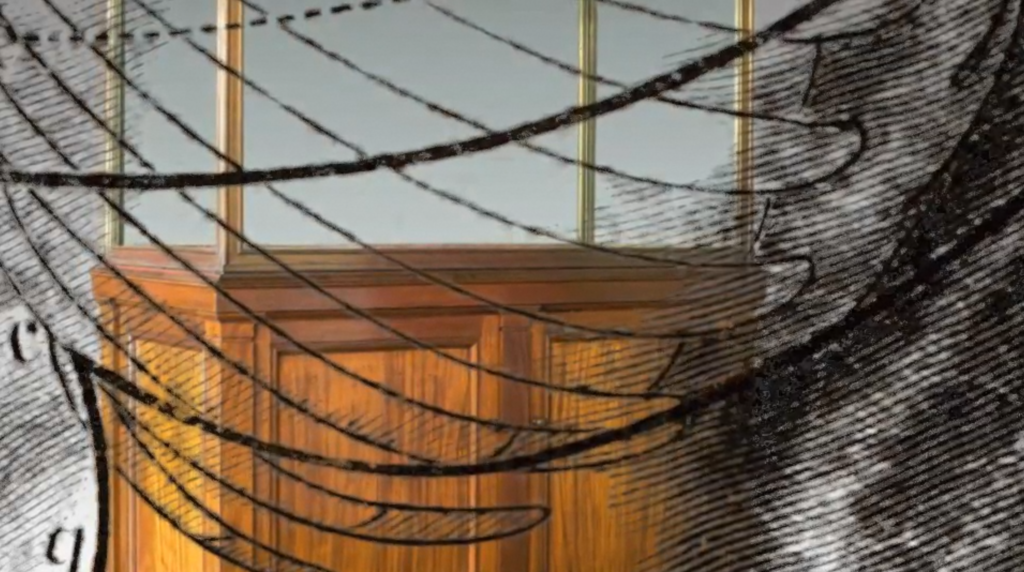
Conference Paper | Auscultating Museological Bodies and Spaces
Salomé Voegelin and Mark Peter Wright presented a paper recently at "Sound Instruments and Sonic Cultures", an interdisciplinary conference hosted by the Science and Media Museum (UK). The paper, formalized as a film essay, reflected on the stethoscope and its use within auscultation: a method in respiratory health for listening to lung sounds. The work proposed that encountering and understanding lung sounds, via a medical discipline, could offer cross disciplinary strategies on how to curate and engage museological artefacts, underpinned by the design of listening protocols. The Film and Q&A was part of the session "Institutes and Memory" (Dec 15th) along with a presentation by Carolyn Birdsall, chaired by Tim Boon.
You can access the session in full here until January 14th 2021.
________________________________________________________________________________________
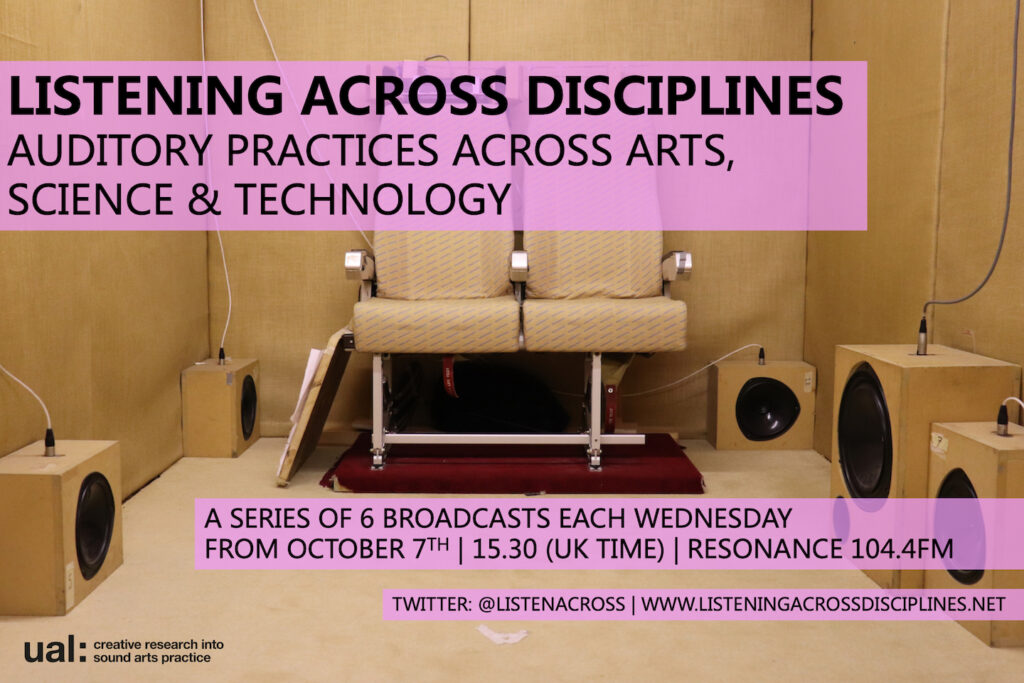
Broadcasts | Auditory Practices across Arts, Science and Technology
Our new broadcast series launched on Resonance 104.4fm throughout October-November. Over six weeks episodes explored listening as a professional practice, diagnostic strategy and investigative method in the fields of health science, auscultation, speech synthesis, anthropology, urban planning, and sound arts. The programs mix conversations with lab and field demonstrations, as well as environmental sounds. Each installment creates its own listening journey and entangles different voices and approaches with the spaces in which listening takes place.
Full listings/archive stream:
Episode 01. Speech Synthesis. Wednesday 7th October, 15.30, 2020
Episode 02. Sound Urbanism. Wednesday 14th October, 15.30, 2020
Episode 03. Auscultation. Wednesday 21st October, 15.30, 2020
Episode 04. Sonic Anthropology. Wednesday 28th October, 15.30, 2020
Episode 05. Biomedical & Acoustic Engineering. Wednesday 4th November, 15.30, 2020
Episode 06. Sound Arts. Wednesday 11th November, 15.30, 2020
________________________________________________________________________________________
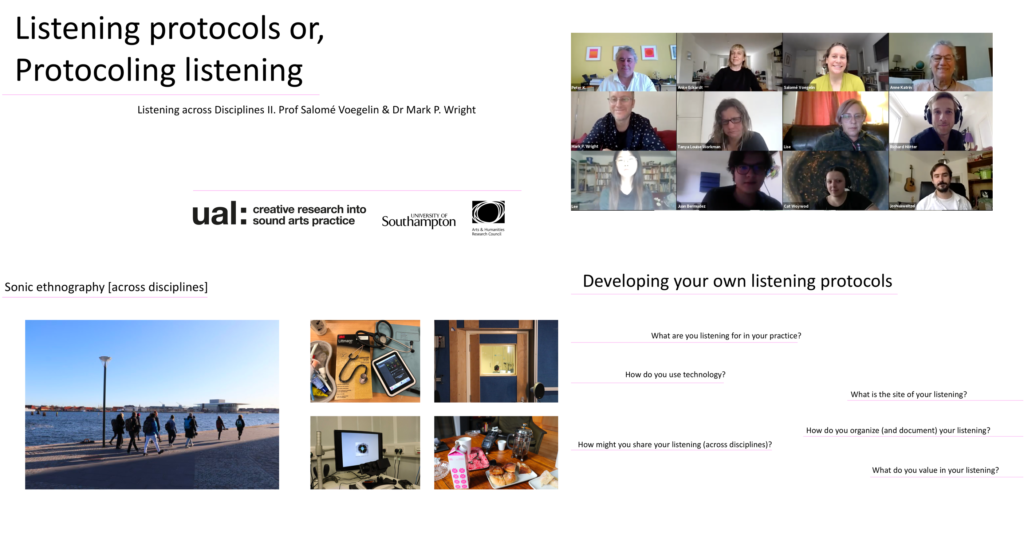
Seminar & Workshop | Listening Protocols
Salomé Voegelin and Mark Peter Wright presented Listening Across Disciplines II as part of a seminar-workshop series at Johannes Gutenberg-University, Mainz. During the 2-day session we focused on listening protocols and together with participants developed a range of practice-based protocols designed around the situated and specific context of those involved. You can listen to an audio excerpt below of the main presentation content in which we discuss the overall aim of LXDII and demonstrate how we are conducting research in the field, and how we are operating it once out.
________________________________________________________________________________________
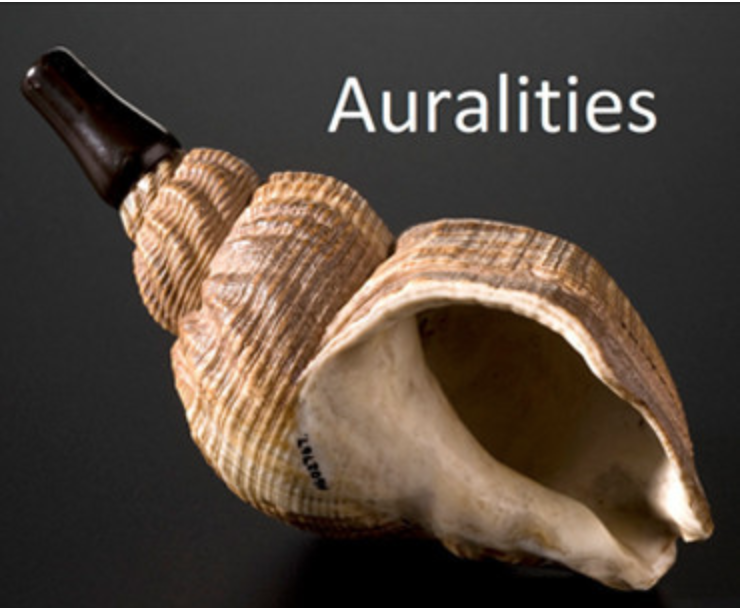
Round Table | Technologies of Listening
Salomé Voegelin took part in a fascinating round table at Cambridge University, as part of their ‘Auralities’ research network events. Auralities is concerned with investigating, debating and understanding practices of audition, broadly conceived. The round table was on the topic Technologies of Listening, and took place on the 16th of October 2019. Salomé joined Michael Bull, from the University of Sussex, and Melissa Dickson, from the University of Birmingham, and the discussion was moderated by David Trippett and with Steven Connor as Respondent, both from the University of Cambridge.
You can listen to Salomé’s contribution on technologies of listening here:
The Auralities research network understands its research as necessarily plural: practices of audition are shaped by wider cultural practices that shift across different times and places; differences between ‘hearing’ and listening’ have preoccupied philosophers and scientists alike; and even definitions of sound itself presume a normalized baseline of human sound perception (traditionally cited as 20 Hz to 20,000 Hz), averaged across large populations. On an individual level, too, pluralities prevail, as audition is typically understood as a psychoacoustic process that involves two ears – ‘binaurality’ – in which sound, space and time become closely entangled. Our seminar will explore these plural facets of sound, hearing and listening by bringing together scholars and practitioners from a range of disciplines across the humanities, social and natural sciences.
In particular, the project aims to extend the current domains of sound studies chronologically, geographically, biologically, and culturally, to question assumptions about shared norms of hearing/listening. They are especially interested, somewhat paradoxically, in what we might understand as a post-aural moment in sound studies, where literal audition or the presence of audible sound are no longer presumed as a necessary part of aurality.
For more information about the Auralities research network, and for the full length audio of the round table, head to http://www.crassh.cam.ac.uk/events/28730
________________________________________________________________________________________
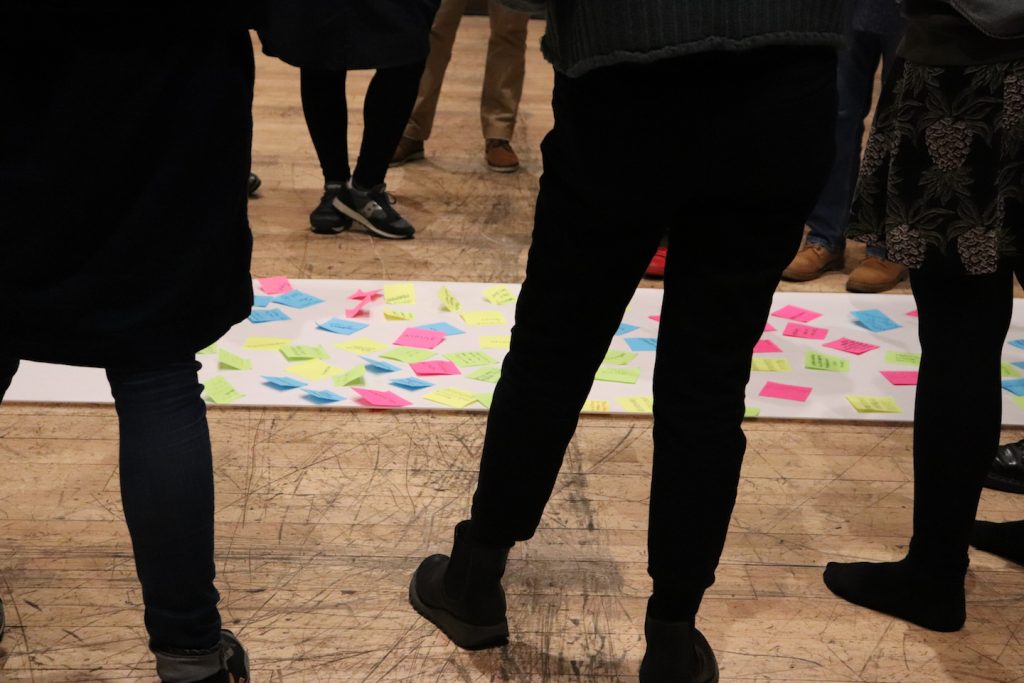
Public Workshop | Experiments in Care-ful Listening
This public event was held at the Del La Warr Pavilion (Bexhill-on-Sea) and explored questions such as how can we develop a sense of care in relation to listening and a listening with a sense of care? How do we hear words beyond speech? Together with workshop participants we practiced individual and collective listening exercises, sound-making, notation and text scores. The activities culminated in a collaborative 'Manifesto-protocol for Care-ful Listening.'
The event was produced in relation Mikhail Karikis’ work I Hear You, installed in the first floor gallery and in collaboration with our partner Points of Listening. For more documentation please visit the Points of Listening website.
________________________________________________________________________________________
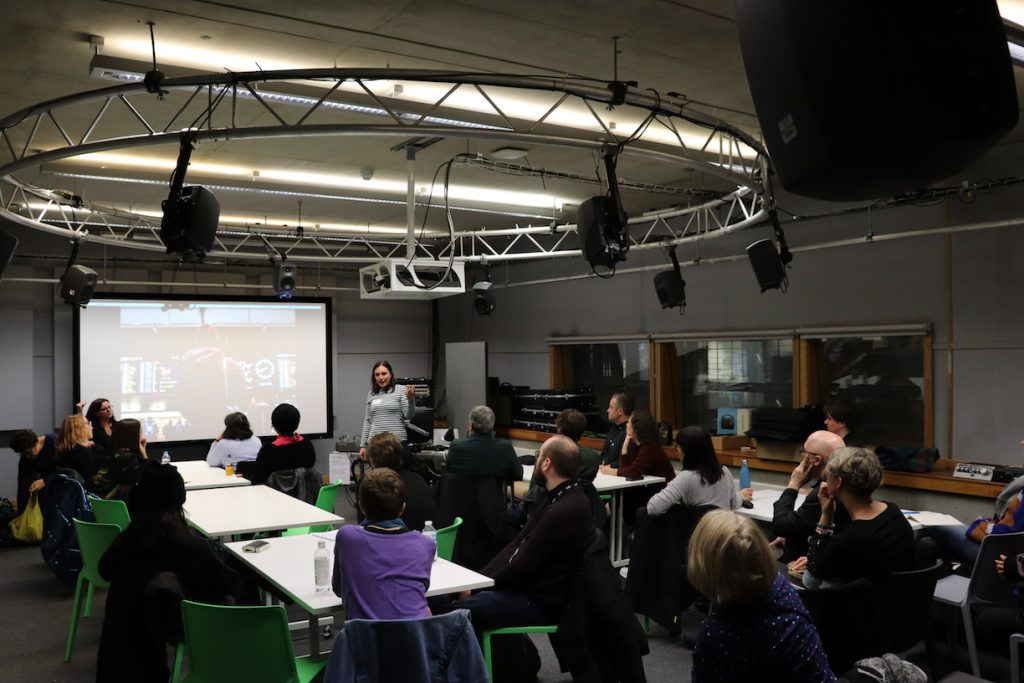
Deaf Gain: Exploring Sound, Technology and Hearing Diversity
This event investigated the relationships between sound, listening and technology within the context of deaf gain (Bauman & Murray, 2014). The term was foregrounded over ‘hearing loss’ as an affirmative way to position the wealth of contributions deaf culture provides across science and art. Within the specific context of sound studies/art we were interested in the re-interpretation of ‘loss’ through ‘diversity’, and to engage in questions such as: what is deemed normative or natural listening and who gets to decide such parameters? How is technology enabling or disavowing deaf culture? How useful are terms such as hearing loss, hearing diversity and deaf gain? How might artists and scientists work together – with the aid of protocols – in ways that can establish ethical and aesthetic technologies?
Contributors included: Marie Curie Fellow Carol Chermaz, artist and composer Tom Tlalim and multidisciplinary artist Seohye Lee. The event was produced in collaboration with our partner Points of Listening and supported by CRiSAP (Creative Research into Sound Arts Practice). For more documentation please visit the Points of Listening website.
________________________________________________________________________________________
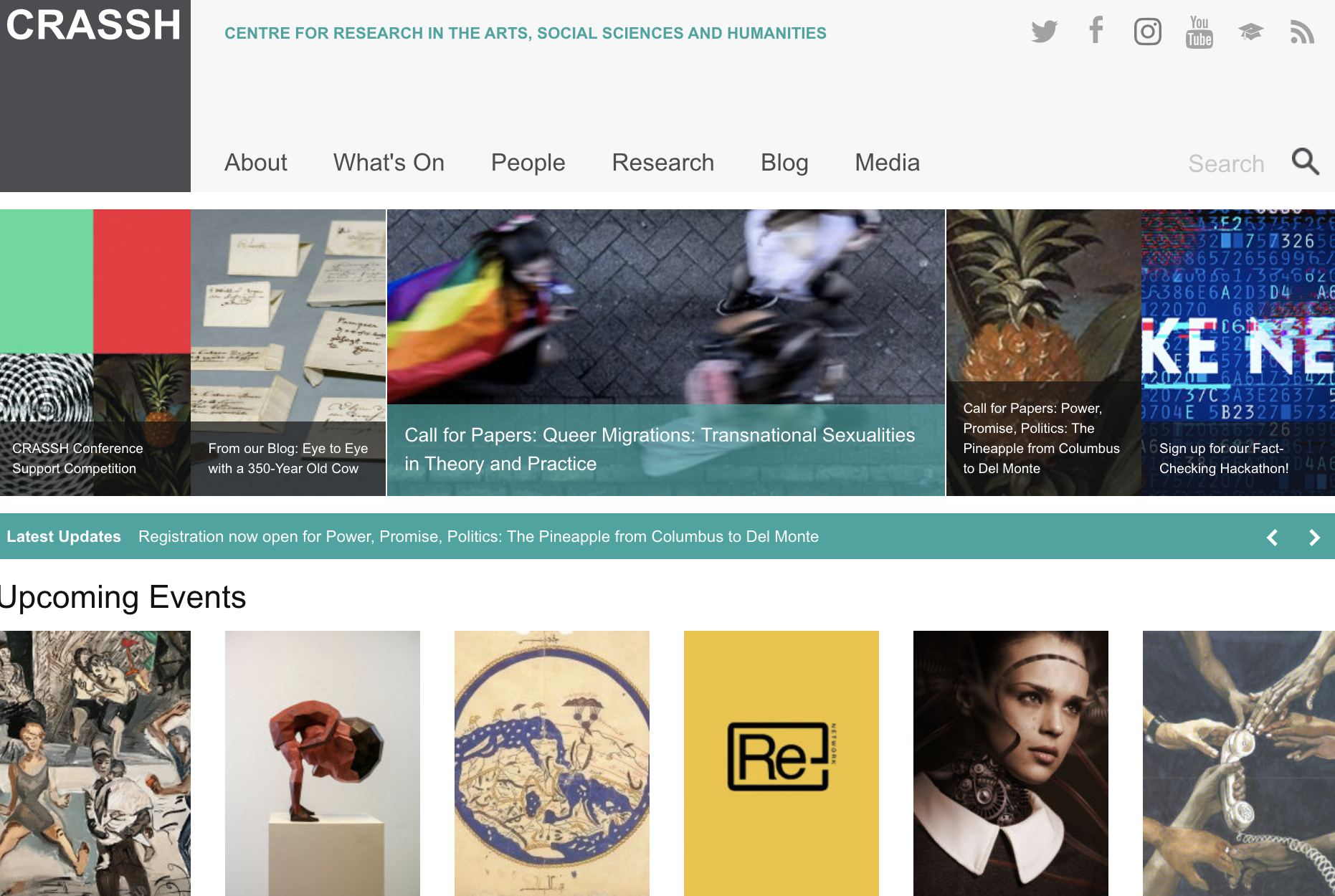
CRASSH Technologies of Listening: Roundtable Event
Are we listening to technology or to the thing we are listening to? What is the space between technology and the ear, is it a fiction, a composite or a compromise? Does it matter in the mattering of sound?
On Oct 16th, Salomé Voegelin delivered a presentation at Cambridge University for CRASSH event 'Technologies of Listening: Roundtable'. Salomé's presentation drew from current Listening across Disciplines II research and explored the influence and status of the technological conduits that enable and determine our listening during and beyond the live event. http://www.crassh.cam.ac.uk/events/28730
________________________________________________________________________________________
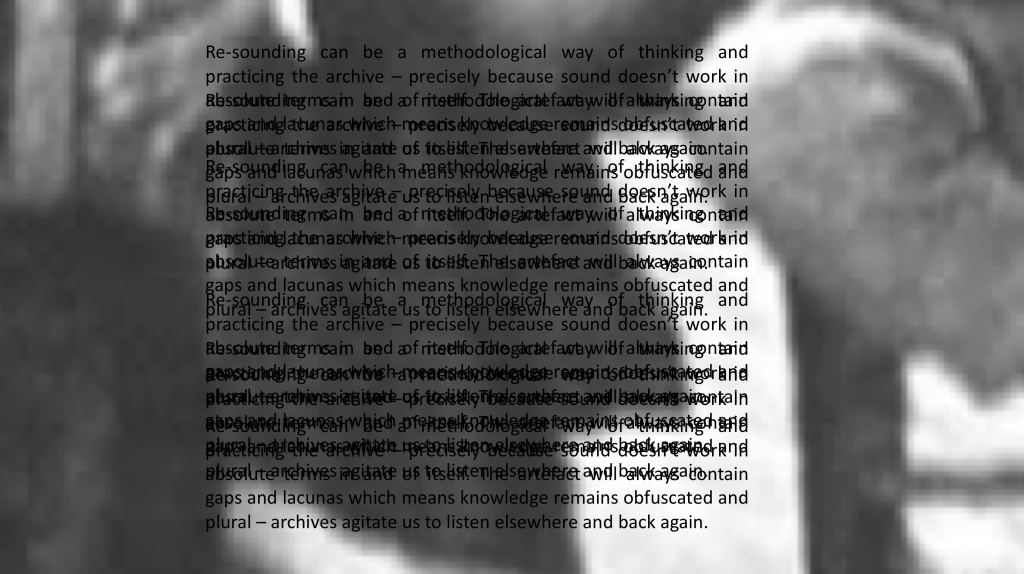
Sounding the Archive: Wellcome Collection Event
The LxDII team presented a joint keynote lecture for ‘Sounding the Archive’ at The Wellcome Collection, London. Drawing from their explorations of the collection’s archives Salomé Voegelin, Anna Barney, Mark Peter Wright and LxDII partner from KTH Royal Institute of Technology, Sweden, Sandra Pauletto each presented a ten minute presentation of their research, considering what place sound and listening may have within the archive.
In presenting order; Salomé Voegelin approached the Wellcome Collection’s archives by attempting to find and explore the sonic ‘in-between’ of anatomy and poetry and the knowledge that may come from this.
Exploring what we hear and do not hear within archives and tempting us to consider how we may be a little bit like spiders, Mark Peter Wright drew from recordings of the tarantella, a musical therapy for people bitten by the tarantula, as well as the dulcet sounds of wolf spiders purring.
Biomedical acoustic engineer Anna Barney worked with an archival image from Fasculo de Medicina, written in 1493, exploring authenticity around the written word describing the sounds we hear in order to diagnose.
Lastly, Sandra Pauletto dissected ideas around data sonification and drew from the handwritten meteorological journals of visually impaired, natural philosopher John Gough. The event was curated by Dr Louise Gray.
________________________________________________________________________________________

Sound & Listening on the edge of Music, Performance, Film and New Media
Salomé Voegelin presented a talk entitled 'Listening out for ambiguous knowledge and unreliable traces of thought,' at Ghent University for Sound & Listening on the edge of Music, Performance, Film and New Media, 2019.
This talk was a curatorial performance, a lecture that curates works and texts and thus performs research rather than its outcome. Speaking, singing, reading and moving it draws the ambiguous and the unreliable into the sphere of knowledge and unperforms its systematic and taxonomical certainty to reperform the thinking of things from the mobile depth of sound. This depth is the ‘back’ and ‘behind’ that Maurice Merleau-Ponty discusses in the working notes of his book The Visible and the Invisible (1968). It is ‘the dimension of the hidden’, which is the place of my looking, my simultaneity with the thing, which therefore I am too close to see but can hear while sounding myself. Here I hear my simultaneity with others and other things, and sense the depth of the in-between, where sound does not draw on the lexicon and does not confirm taxonomies, but sounds the movement and configuration of an unreliable knowledge of the ambiguous. https://www.ugent.be/doctoralschools/en/doctoraltraining/courses/specialistcourses/ahl/sound-and-listening-2019.htm
________________________________________________________________________________________
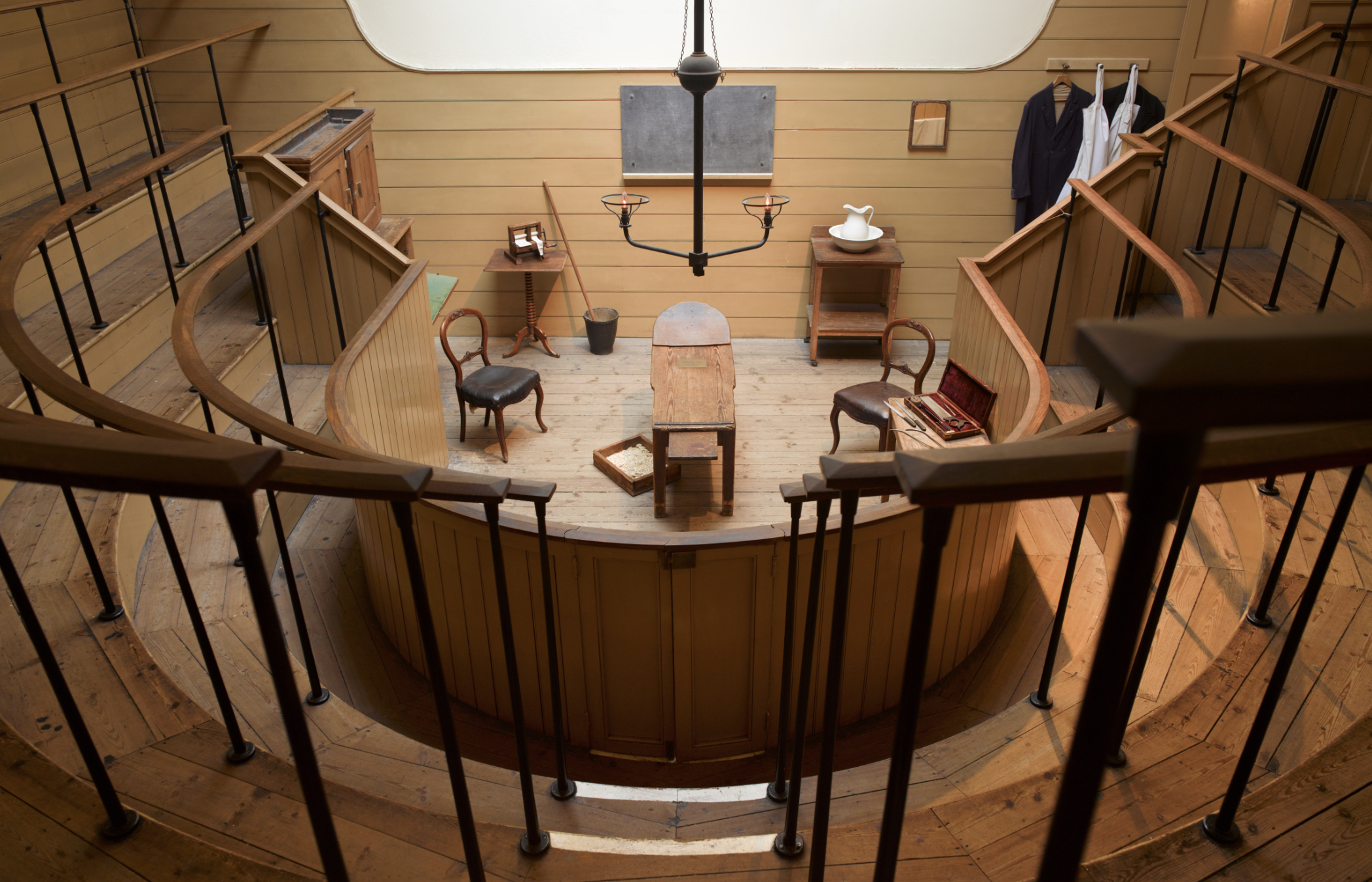
SAY AAAAAAHHHHHH
Salomé Voegelin delivered an improvised, performance lecture in which sonic and textual material was used to stimulate and frame notions of ‘listening’ followed by a Q+A. The Old Operating Theatre, London, 2019.
Listen to Salomé Voegelin’s performance lecture
________________________________________________________________________________________

ISSTA Keynote Lecture
Salomé Voegelin & Anna Barney delivered their keynote lecture Accessing Disciplinary Hinterlands through Listening for the Irish Sound, Science & Technology annual conference (ISSTA), 2018.
Abstract: In the context of this presentation the Hinterland is the place beyond the agreed methodologies, vocabularies and processes that stand as certainties of a particular discipline. Accessing this Hinterland is a stepping into the unknown, the unagreed, what we might not be able to talk about or grasp within disciplinary frameworks; what might not yield value or acceptance within its community of researchers and knowledge stakeholders. However, it is potentially also a place of opportunity, of new insights and cross-disciplinary production, which might yield much innovative thinking and doing, augmenting the conventional disciplinary knowledge process.
The discipline, in this context, is understood as the walled cities of knowledge. And we believe that sounding and listening as a form of activism and interference, can break through these partitions to hear possibilities, and resistance to them, and to make propositions about how else we could work together, how else knowledge could be produced. In this sense this presentation, jointly staged by Prof. Anna Barney and Dr. Salomé Voegelin proposes that listening to these disciplinary Hinterlands provides access to an unknown sphere that hovers behind and between disciplines and that offers opportunities for new thinking, cross-disciplinary collaborations and another way to see the frames given to us by academic infrastructure and expectation.
Listen to the Keynote
About ISSTA 2018: contemporary urban society is a contested space. Commerce generates a flurry of signage and advertising jingles. Industry excavates and accumulates, building uniform structures of concrete and steel, and throughout all is the traffic of daily ritual, the friction of tires on tarmacadam. Commercial interests and planners often distill this heterogeneous field down to simplified brands, cultural signifiers designed to encourage investors. What room is left in this complex of power and policy for community? Where is public space and what role can it play in contemporary life? How can sound, in particular, interrogate the urban matrix?
In 2018, ISSTA returns to Derry to explore these issues, relationships and tensions. With the spatial definition provided by its historic walled city and cross–border hinterland, the resonances of its civil rights movement (of which 2018 marks the fiftieth anniversary), its historic conflicts and diverse musical and sonic cultures, from traditional music sessions to marches, we hope that Derry will provide a thought–provoking setting which will support fruitful discussion, debate and listening!
________________________________________________________________________________________
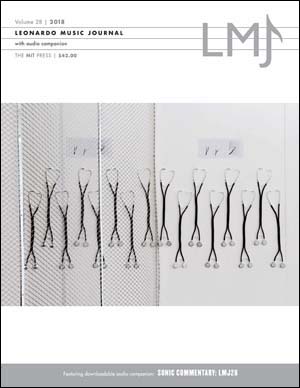
Leonardo Journal Article
This article adapts a conversation between Anna Barney and Salomé Voegelin and discusses the first iteration of the network project Listening across Disciplines, which brought together artists, musicians, scientists, technologists and social scientists to discuss the use, value and application of listening as a shared methodology of inquiry and communication. The discussion focuses on one of the key issues emerging from this network: the question of consensus and collaboration in the development of a shared listening methodology. https://www.mitpressjournals.org/doi/abs/10.1162/lmj_a_01046
________________________________________________________________________________________






